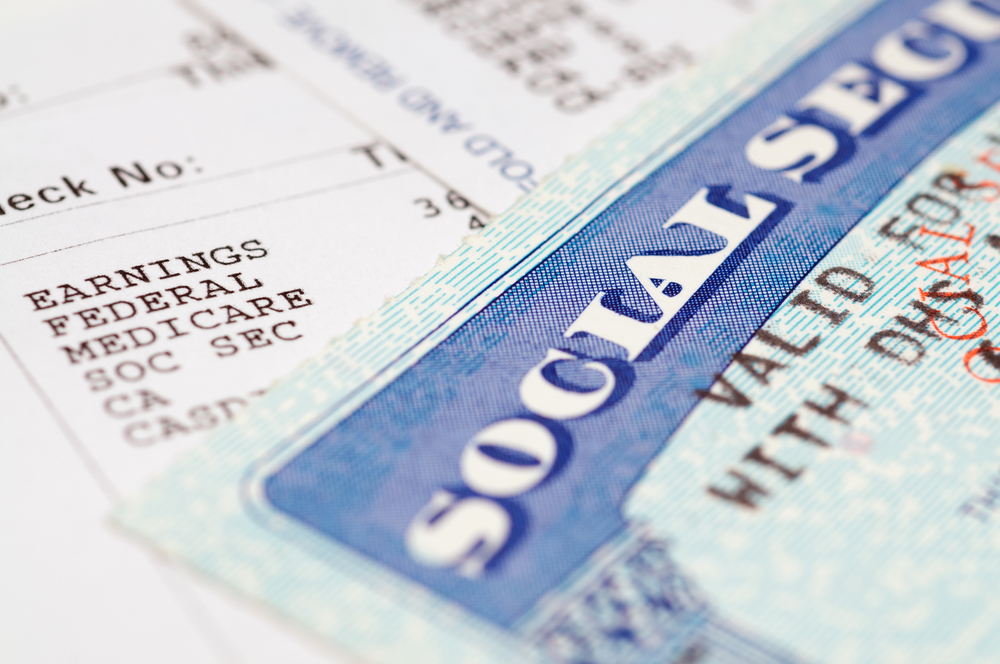
What You Need To Know About Social Security
Social Security is an important piece of just about everyone’s retirement pie, but the rules for claiming it make it challenging to give clients the best advice. Unfortunately, there’s no one-size-fits-all approach. The following is some information you might find useful in your decision making regarding when to begin taking your benefits.
What are the changes to Social Security for 2021 that accountants need to be aware of?
One of the major ones to be aware of is that, between the ages 62 and 66, you’re limited as to how much you can earn. If you make more than $18,960, for every two dollars that you earn over that, you have to give back a dollar of your Social Security benefit. If you’re still working and earning $51,120 or more, it makes no sense to start Social Security at age 62 because you’ll be paying everything back.
Another important number is $142,800. That’s the maximum salary or self-employed income that you pay Social Security taxes on. Maybe you’re in a position where you can move money into this year or next year. If every year your income is similar, then you might move money into the current year and be over that maximum so that, over the two years, you’re not paying as much Social Security tax in total.
Are there any other ideas for self-employed people?
A lot of self-employed people try to get their income as low as possible so they don’t pay a lot of income taxes. But they can hurt themselves by doing that. Your Social Security is based on your best 35 out of 40 years of earnings. So, you might save some income taxes today, but you’re also minimizing the amount of Social Security benefit you’ll receive in the future.
How can people find the best balance of saving on their income taxes now and maximizing Social Security benefits?
There’s a calculator at the Social Security website that will give you many different types of calculations of benefits. Seeing your accountant would also be advisable in planning for retirement.
Social Security is important but shouldn’t be looked at in a vacuum. All other aspects of someone’s assets, sources of income, spending habits, and fixed and variable expenses need to be considered as well.
What is the best advice now on when clients should start claiming Social Security?
Everyone’s situation is unique. If you’re between 62 and 66, you’re very limited as to how much you can make and collect your full Social Security benefit. I rarely recommend [starting to claim benefits at age] 62 unless somebody just physically can’t keep working. You’ll receive 6% to 7% more a year by waiting until full retirement age [than you would had you taken benefits at 62]. The break-even point if you’re between 62 and 66 now — the age you need to reach to come out ahead — is roughly age 73 or age 74. That’s the age you will, over the course of your retirement, receive more total Social Security benefits by waiting to full retirement age to take them.
For most people, every financial model indicates to wait until full retirement age. Benefits continue to increase between full retirement age and age 70. For the difference between full retirement age and age 70, the break-even point is around age 82 or 83. So, if I think I’ll live long beyond that, then it becomes more of a lifestyle question. Would it be more important for me in my life to have a little extra money today to travel and do things I want to do?
However, if Social Security is a major part of what you are going to be living on, and if you are healthy and enjoy working, then it’s important to wait to age 70 to get the largest benefit.
What about spousal benefits?
If your spouse has very low earnings or no earnings, they’ll only get spousal benefits. Under the rules put in place in 2015, they can’t get a check now unless you are also taking a check. So, in those situations, it makes sense to start Social Security no later than full retirement age. Then your spouse will get half of your benefit plus you get your own benefit. If you wait to 70 to collect and your spouse is the same age, then he or she can’t get a spousal benefit until age 70 either.
Are there any changes for the future that we need to start thinking about now?
In 2034, the Social Security trust fund will run out of money. They’ll only be able to pay out about 79% of benefits based on the amount of money that comes in, so something needs to be done before that. 2034 is not that far away. The Y2K celebrations were 18 years ago, and that doesn’t seem that long ago.
We’re at the cusp of when people who will be retiring soon [those born in 1955 or later] will reach full retirement age at 66 and a few months, rather than 66. And those born 1960 and after will need to be 67 [to reach full retirement age]. Those rules were put in legislation that was done in 1984, and those rules are just being applied now.
How can accountants get a sense of what might happen to Social Security in the future?
Since 2015, three separate bills have been introduced in Congress. These bills are the best guess as to the thinking process going on to fix Social Security. The proposed changes include increasing the wage base subject to Social Security tax; increasing the Social Security tax rate; decreasing benefits for high earners; raising the full retirement age; and changing the calculation methods for benefits, among other ideas.
What planning and saving strategies should people be thinking about instead of relying on Social Security?
Individuals need to be saving in their 401(k) if they have one available to them. If they don’t, they need to be contributing to IRA accounts. They also need to be saving outside of these tax-deferred vehicles to have enough so that they can live off the investments in retirement. A suggested savings rate for individuals in their 20s is 15% of their gross income. The older you get before you begin saving, the higher the percentage of your gross income that you need to save.
What are the rules regarding collecting benefits from an ex-spouse?
If you are divorced, but your marriage lasted 10 years or longer, you can receive benefits on your ex–spouse’s record (even if they have remarried) if: You are unmarried; You are age 62 or older; Your ex–spouse is entitled to Social Security retirement or disability benefits; and. The benefit you are entitled to receive based on your own work is less than the benefit you would receive based on your ex-spouse’s work.
Your benefit as a divorced spouse is equal to one-half of your ex-spouse’s full retirement amount (or disability benefit) if you start receiving benefits at your full retirement age. The benefits do not include any delayed retirement credits your ex-spouse may receive. If you remarry, you generally cannot collect benefits on your former spouse’s record unless your later marriage ends (whether by death, divorce, or annulment).
If your ex-spouse has not applied for retirement benefits, but can qualify for them, you can receive benefits on their record if you have been divorced for at least two years.
If you are eligible for retirement benefits on your own record and divorced spouse’s benefits, we will pay the retirement benefit first. If the benefit on your ex-spouse’s record is higher, you will get an additional amount on your ex-spouse’s record so that the combination of benefits equals that higher amount.
If you were born before January 2, 1954 and have already reached full retirement age, you can choose to receive only the divorced spouse’s benefit and delay receiving your retirement benefit until a later date. If your birthday is January 2, 1954 or later, the option to take only one benefit at full retirement age no longer exists. If you file for one benefit, you will be effectively filing for all retirement or spousal benefits.
The amount of benefits you get has no effect on the amount of benefits your ex-spouse or their current spouse may receive.
